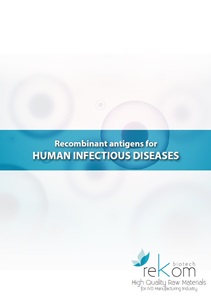Toxoplasmosis
Toxoplasmosis is a zoonoses caused by the parasite Toxoplasma gondii. It is part of the diseases included in the TORCH panel. It is one of the most common parasitic diseases, infecting humans and almost all warm-blooded animals, including pets. Although cats are a necessary part of the parasite's life cycle, it rarely causes clinical disease in cats. The transmission of toxoplasmosis usually occurs through the ingestion of infected meat, but it can also be transmitted through contact with cat feces or contaminated soil, or through blood transfusions or organ transplants from infected patients. It can also be passed from mother to child during pregnancy. The symptoms depend on the patient's health status. If the patient's immune system is intact, it is usually asymptomatic, with low-grade fever, malaise, fatigue, and lymph nodes in the cervical region sometimes appearing. In immunosuppressed patients, it usually presents symptoms related to the central nervous system: hemiplegia, gait and balance disorders, blurred vision and seizures. In this type of patients, it can cause toxoplasmic encephalitis (TE), and even death. In the case of congenital toxoplasmosis, it can cause abortion, malformations and even prenatal death. The treatment consists of antimalarials and antibiotics, and as a prevention it is recommended to avoid the consumption of undercooked meat, hand hygiene, and diagnostic tests for pregnant women and patients with HIV. The most common diagnosis of toxoplasmosis is based on the detection of antibodies, but other techniques such as isolation or direct observation of the parasite and molecular techniques can also be used.
Toxoplasmosis is a worldwide endemic disease, although prevalence is generally higher in areas of the world that have hot, humid climates and lower altitudes. Although it rarely causes significant symptoms in healthy adults, the Center for Disease Control and Prevention (CDC) has identified toxoplasmosis as one of the top five neglected human parasitic infections, due to its high prevalence. Therefore, the diagnosis of toxoplasmosis is useful for human and animal health, since it allows the spread of the disease to be controlled.
Toxoplasmosis causes a significant economic impact among livestock: it is the cause of a high number of abortions and neonatal mortality, affects milk production and leads to indirect losses derived from veterinary expenses. In the case of European cattle sheep, it is estimated that 50% are infected. It also affects goats, pigs, rabbits and cows, although the latter quickly eliminate the parasite.
Human and animal infectious disease (mainly warm-blooded animals)
At Rekom Biotech, we desing and manufacture IVD reagents for diagnosis of Toxoplasmosis. If you do not find what you are looking for, you can request our custom-made recombinant proteins/antibodies service. Do not hesitate to contact us!
Recombinant proteins
Polyclonal antibodies
How to reconsitute lyophizated vials
IVD reagents for diagnosis of Toxoplasmosis







